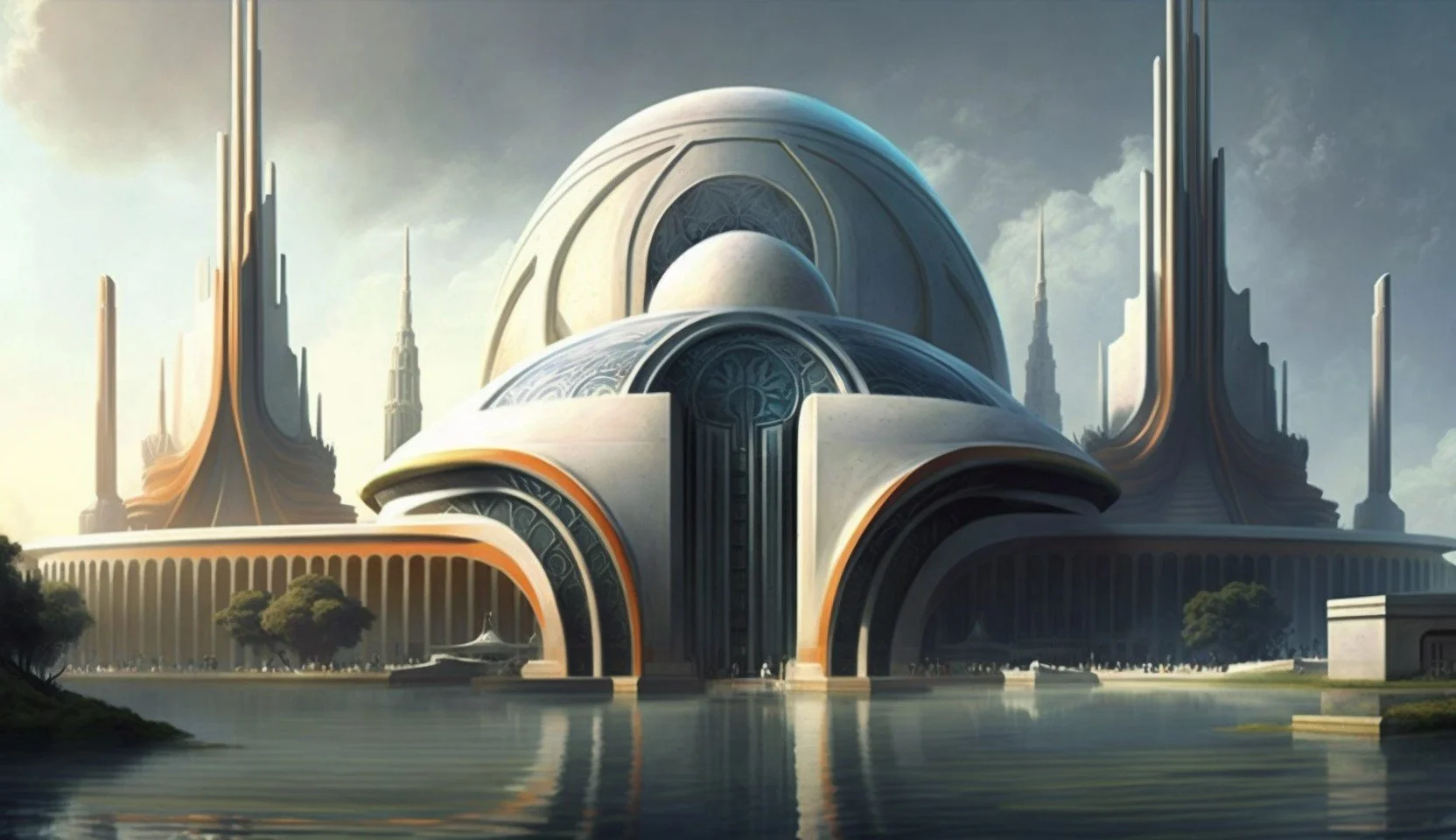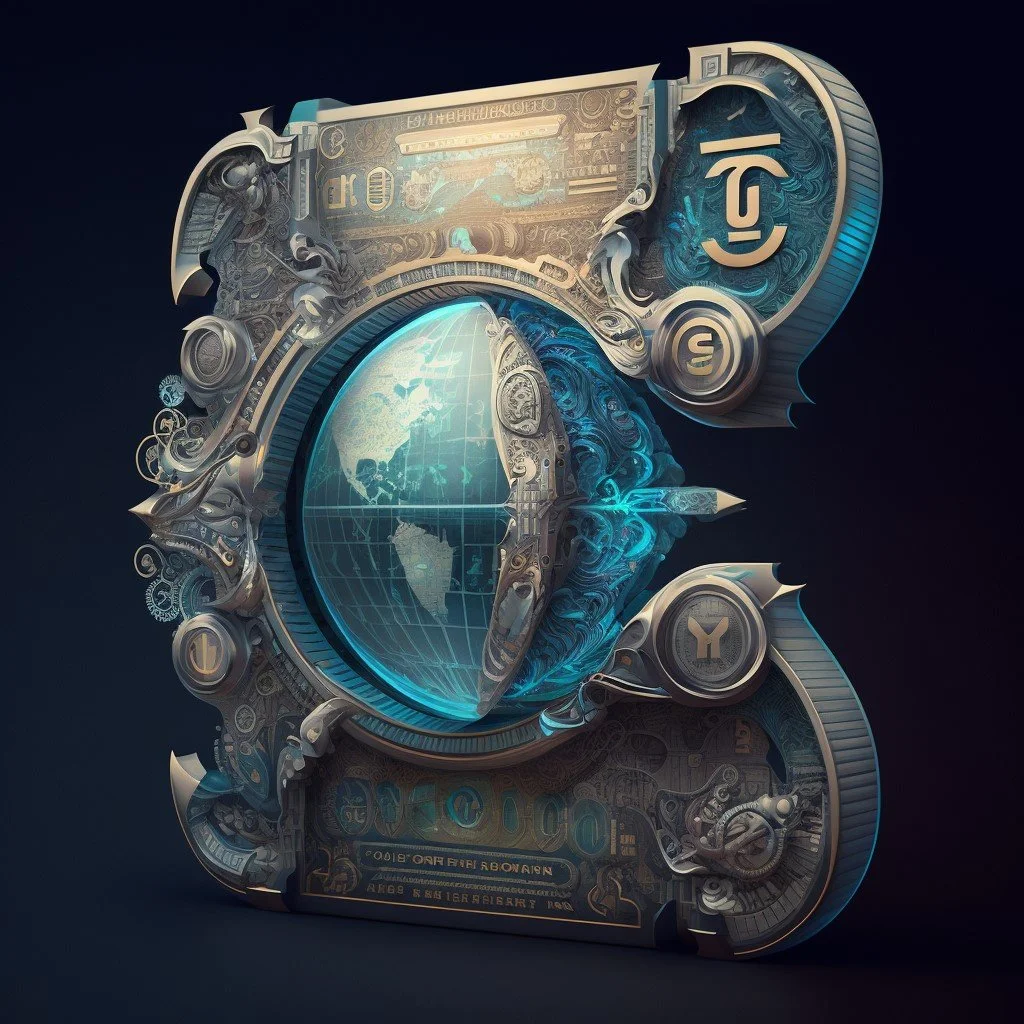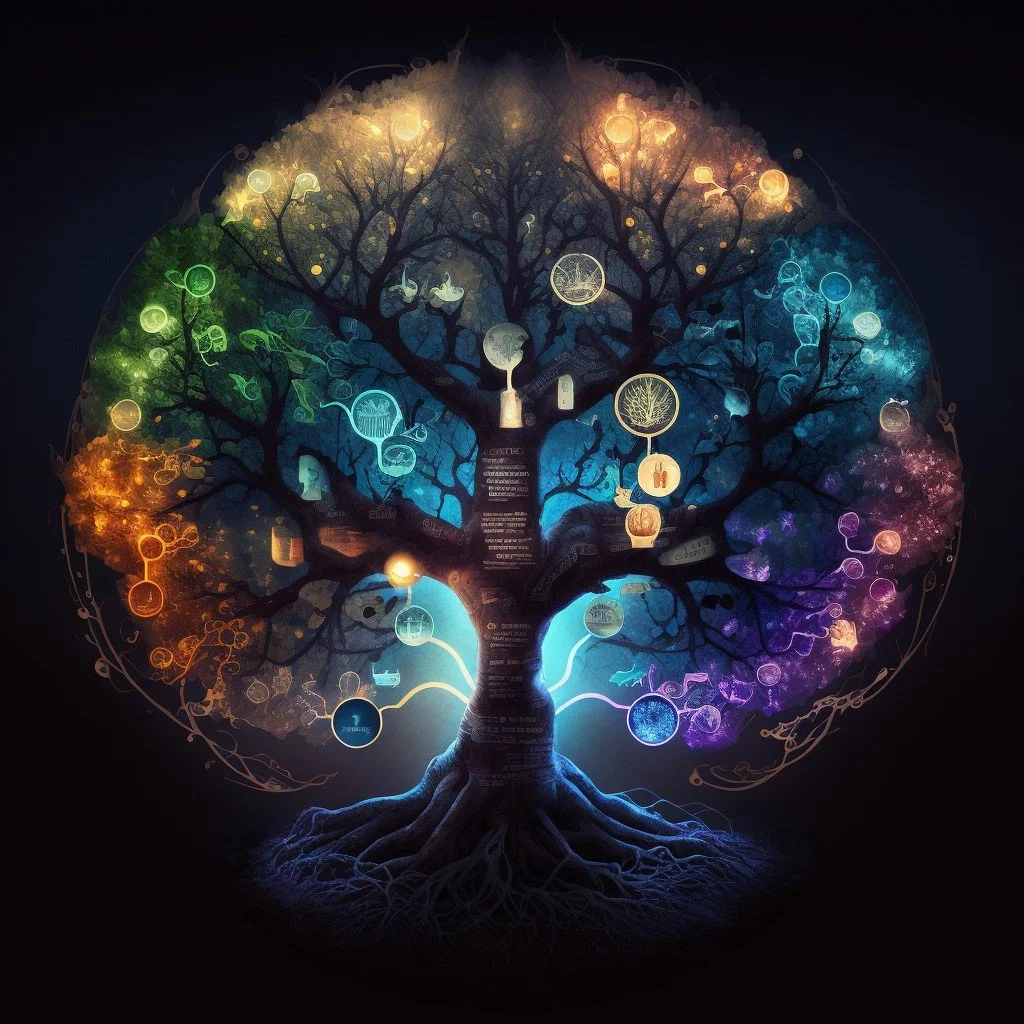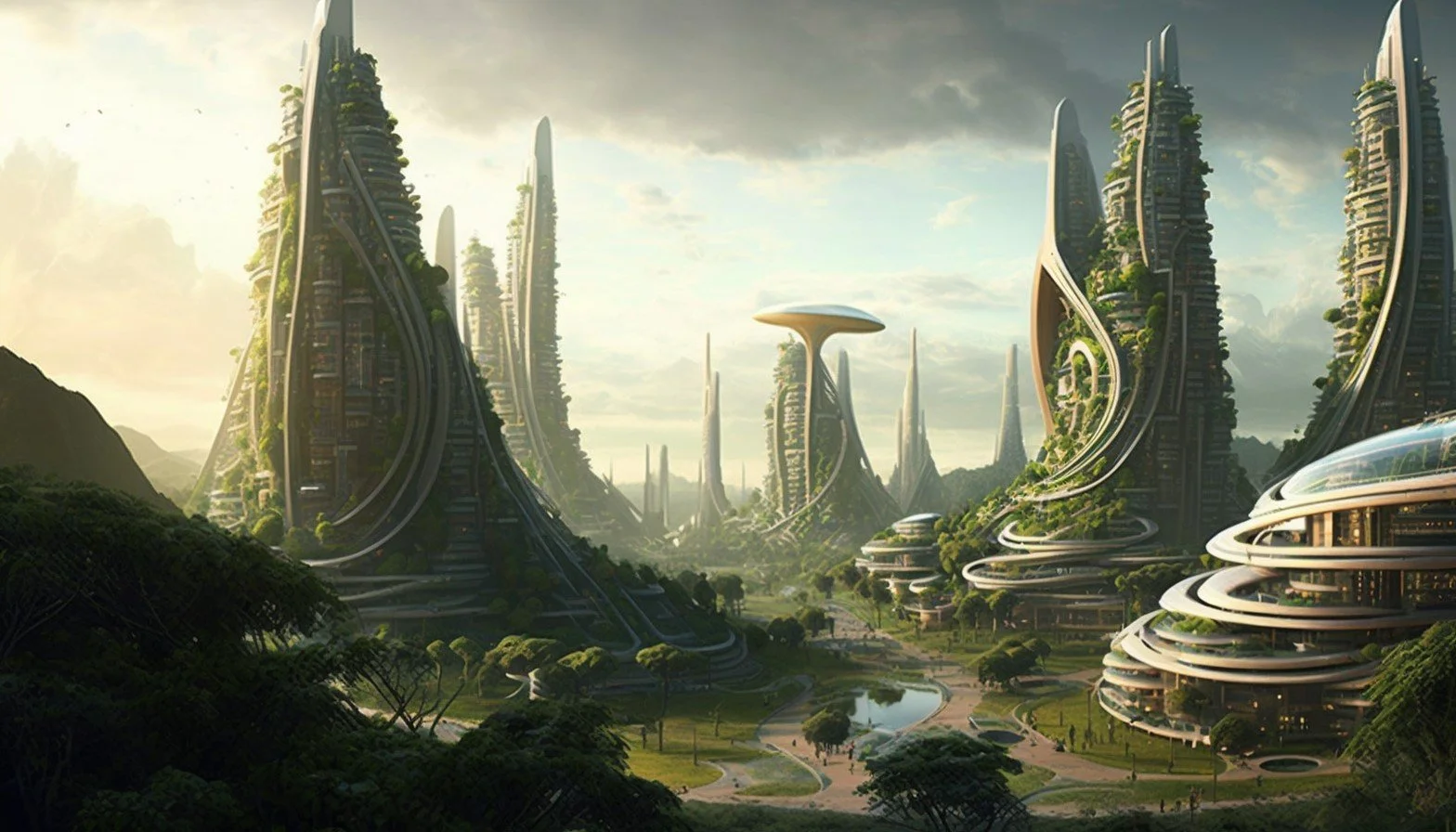The Truthworks Project
Mission Statement:
A worldwide effort to expose fake news and corruption of all kinds by training, certifying, and employing Truthseekers to grade and categorize all influential individuals and news stories by an accurately estimated level of trustworthiness.
Prerequisites of Becoming a Truthseeker
In order for a person to be considered for Truthseeker training or employment, they need to meet (or be aspiring to meet) the following criteria:
Critical thinker
Passing marks on all relevant aptitude and integrity tests administered by the Truthworks Academy.
Expert debater with advanced understanding of both formal and informal logic.
Able to use the scientific method and perform expert peer review in at least one field.
Reasonably unbiased
No direct ties to any established political or news organizations.
Transparent about their political beliefs and preferences.
Generally respected by a relevant community of peers.
Not easily corruptible
No indication that they value money or physical comforts above personal integrity.
Law-abiding, excepting arguably unjust laws that endanger people’s lives.
General reputation of honesty (toward ethical actors) and acting in good faith.
These criteria may seem to be a tall order to you, or maybe you suspect that there’s no way to objectively assess whether anyone meets any or all of these criteria. Let’s go through the criteria one by one, looking at our current best idea of how many people should be able to meet them, and how we expect to be able to fairly determine whether any person in particular meets them.
Critical Thinking Aptitude
Most universities today use some variation on IQ tests, or more broadly intelligence or G-factor tests, to determine which applicants will be admitted into their study programs. The schools usually don’t want to admit that their entrance exams are effectively intelligence tests, however, as that may lead to the schools being accused of some form of discrimination. The history of intelligence testing is indeed quite racist, but science does seem to support the existence of general aptitude.
For our purposes, general IQ tests aren’t particularly useful by themselves, given that integrity and related character traits are more likely to make a person truth-seeking and trustworthy than their pure problem-solving capacity. Our version of the test would therefore be a test of motivation rather than brilliance. Better problem-solving ability isn’t necessarily problematic, but it is more of a secondary bonus. Among people of equal integrity, being more brilliant makes one a better candidate.
Critical thinking as a discipline however does require some minimum level of intelligence. Not exactly at the genius level or beyond, but probably at least at the level of slightly above average intelligence. Truthseekers don’t have to make judgments quickly, and they usually don’t have to make very complex judgments, but they still need to be able to make good judgments reliably. It’s also fine if they lack aptitude in areas like mathematics, pattern recognition, or memory, especially for trivia.
Of all the manifestations of intelligence or general aptitude, language intelligence and emotional or social intelligence are probably the most important, so these kinds of problems should be included in the test. These kinds of problems to solve also have the added benefit of it being possible to use them to simultaneously test for comprehension and personal ethics. If the test clearly separated intelligence and integrity questions, it would be much easier to figure out what the right answers are.
What this means is that our approach would be more akin to how psychopathologists and intelligence agencies diagnose disorders and screen agents. For example, a corporate HR officer may ask the candidate an overly obvious question like whether the person thinks it is okay to steal. People who shouldn’t be serving as truthseekers, like sophists or sociopaths, would see right through a question like that, but may fail to identify which questions test smarts and which test empathy.
Additionally, whether IQ is real or not, the problems that we need the truthseekers to solve definitely are real. The basic framing of the problems in our test will be to identify logical errors and indications of dishonesty in examples of personal and media communications. Importantly, this won’t be done in a predetermined multiple choice fashion. Open answers offer more insight into the candidate, and are harder to game. Evaluation will have clear guiding principles, but won’t be mechanistic.
All things considered, our critical thinking aptitude test will be the initial filter. Only the candidates who are of below average general intelligence and who are sociopaths or malicious actors should be prevented from proceeding further. By definition, this leaves 50% of all people who have IQ above 100, while the number of sociopaths, psychopaths, and ambitious sophists should be below 5%. This means that if the test works as it should, about 45% of people should be able to pass it.
Reasoning and Debating Skills
By passing the initial critical thinking aptitude and integrity test, what the candidate has proven is that they should be able to learn all the necessary theory and master all the necessary skills, while also indicating that they’re motivated to practice a truth-seeking philosophy. Reasoning skills are the theory to be learned, while debating skills are the way to practice them in a truth-seeking way. Resources permitting, we will provide courses on formal and informal logic, rhetoric, and philosophy.
In the interest of helping to make the world a more ethical and reasonable place, any aspiring truthseeker, even without passing or taking the test, will have access to our learning materials free of charge. Anyone will also be able to retake the test as many times as they want, and get some form of feedback on their result, since we value personal motivation toward self-improvement. Keep in mind that the specific content of the test will keep changing to minimize the opportunity for cheating.
As for the candidates who do pass the initial test, we will interview them and do basic background checks on them to determine the level to which they need further education in logic or rhetoric to be truly effective as truthseekers. For example, certain academic accreditations or record of participating in debating competitions will be considered. In the absence of prior exceptional record of achievement, most truthseeker candidates will have to become certified in logic and rhetoric.
For logic, the certification would simply mean absorbing a body of relevant knowledge and demonstrating the understanding of the subject matter through a relatively standard test and exam. The closest analog today are the debating adjudicator accreditations. For rhetoric, the only way to effectively test the skill is by participating at a debating tournament of some kind. One will be hosted by us for this purpose, but specific achievements in many others will be recognized by us as sufficient.
Considering that rhetoric is an art, not an exact science, the precise requirements for minimal necessary achievement will ultimately be up to a special body of experienced speakers among the certified truthseekers to decide. Truthseekers of particularly high rank or community rating should be allowed some discretion in deciding individual cases. Between the understanding of logical reasoning and rhetorical skill, it is the understanding of logical reasoning that is more essential.
As for where the admittance lines should be drawn here, the level to which one understands logic is objective, meaning that it can theoretically be reached by anyone, not just the more intelligent half of people. It should certainly be reachable by the more intelligent half of people. Anyone who is able to memorize and apply the theory will be certified. Conversely, in rhetoric, it is not so much about the objective level of debating skill, it is about being more persuasive than most other debaters.
The minimum desirable level of debating excellence for a truthseeker is presently open to debate, but it should certainly be above average (meaning that among all people who specialize in persuasion, the ideal candidate should be able to win arguments more often than they lose them). Debating competitions worldwide don’t exactly have standardized speaker ratings, but a rough comparative formula can be devised between most formats and tournaments worldwide.
Taken together, this means that the theoretical maximum of 45% of the population that could pass the initial exam is likely to be reduced by at least half, if everyone passed the logic exam and we only hosted our own debating tournament and certified the better half of speakers in rhetoric. Realistically, it’s more likely that the actual percentage of the population that could be certified as truthseekers would be around 10%, assuming dropouts and higher speaker requirments eliminate half of the pool.
Ability to Apply Science
On the level of theory, the key principles of the scientific process will be taught and tested along with the theory of reasoning, meaning they will be part of the same certification. Alternatively, the candidates can demonstrate that they have already passed relevant academic programs and have a sufficient grasp of the scientific method. This is again possible to objectively determine, and anyone should be able to acquire the necessary understanding of the subject matter. But there’s more to it.
Among the Truthseekers collectivelly, it would be ideal to cover a broad range of scientific specializations. Settling factual disputes, especially when they’re about more technical subjects, often requires a particular expertise. While simple true/false fact checking as it is done today by a number of agencies isn’t enough for people to get truly informed, advanced understanding of the factual consensus in a field, and how the facts were established in the first place, may be needed.
For this reason, candidates who would bring in new, currently lacking type of expertise will be prioritized. The overall goal is to have a balance of hard and soft science backgrounds among the Truthseekers, with all fundamental fields of both natural and social sciences being represented by more than one Truthseeker. Any public communications that require specific scientific expertise will be directed to the Truthseekers who possess that expertise, while accounting for their disclosed biases.
In an ideal world, all Truthseekers (and all scientists, for that matter) would be wholly unbiased. In our world, it’s nearly impossible for any single person to be virtually unbiased, let alone a whole group of them. The good news is that in science, there are objectively distinguishable types of bias that are acceptable, assuming they are disclosed. The main distinction is majority opinion versus minority opinion, while every discipline has different schools of thought of variable prominence.
The “authoritative” approach of social media’s soft censorship is problematic in that it attempts to silence all minority opinions. As the history of scientific progress shows us, a critical minority can be right, sometimes even a single person, while the majority of scientists can be wrong. After all, the whole point of science is to be self-correcting, to use all available means to try to prove itself wrong. Otherwise, the old academic elites literally have to die out for further progress to be enabled.
What this means for our process is that for every important scientific problem, multiple qualified truthseekers should be assessing the people and claims involved, while making sure that the best minority view is represented. Whenever publications are split between majority view-only and minority view-only perspectives, that’s when the distortion of reality happens, and when healthy scientific discourse dies. Truthseekers do not all need to agree on everything, and they shouldn’t.
No Ties to the Establishment
Considering that the establishment people (who work in the government, own large businesses, manage university programs, etc.) often are sociopaths and ambitious sophists, we don’t expect there to be much of an overlap between established elites and eligible candidates for the truthseeker program. That being said, it’s still important to explain why the people in a position of power, or the people who act on their behalf, shouldn’t serve as truthseekers, regardless of their ethics or expertise.
The whole purpose of the truthseeker role is to be trusted to be critical of the statements of people in power. A person in power has a vested interest in staying in power, meaning that they inherently cannot be trusted to be critical of themselves or their political allies. Those who are paid or otherwise sponsored by people in power also cannot be trusted to be critical of their benefactors. Some people in power are critical of themselves, but they cannot be trusted as a matter of principle.
This is why the main response of big social media companies, chiefly Google, to the epidemic of fake news - shifting traffic to “authoritative” sources - was particularly tragic. Authoritative sources like mainstream media or universities have clear conflicts of interest whenever the truth threatens their owners or the success of their political allies. Authoritative sources also typically mean large institutions, mired in corruption and bureaucracy. The truth is, authorities don’t seek the truth.
At least half of the reason why fake news is a problem is that big, authoritative educational and media organizations have lost their credibility as soon as they lost the monopoly on “truth” and their dirty laundry became available to everyone over the internet. Fake news was the natural response of sociopaths and sophists, who saw it as an opportunity to spread lies for their personal gain under the guise of fighting the lies of the establishment. Recentralizing the monopoly on lies isn’t the solution.
The solution are independent good faith actors who are critical of all communications in a fair and intelligent manner without any consideration for profit. They do keep spontaneously emerging, but unfortunately, Google search and YouTube clamped down on them along with emerging disinformers, and they have always lacked organization. The Truthworks is our attempt at coming up with the best version of such critical thinkers, acting together as part of a streamlined, antifragile institution.
Transparency of Belief and Preference
As was said earlier, virtually all people have some kind of bias, even if they’re honestly trying very hard to be fair and logical in all situations. Everyone prefers some ideas or feelings over others. People also naturally differ in temperament and life experience. Most typically, one should expect differences in bias between the young and the old, men and women, the rich and the poor, etc. That’s not necessarily a problem, not even for Truthseekers, but only assuming that the biases are disclosed.
One way to account for different biases is indeed to strive to have a demographically diverse and balanced group of Truthseekers. Many systems of justice and regulation are failing to represent whole segments of population precisely because those whole segments of population lack representation among the professionals or elected or appointed officials within those systems. Truthseeker candidates therefore cannot be anonymous, we’ll need to know their basic demographic data.
This means we will collect and account for their name, age, gender (their subjective gender preference), nationality and ethnicity (from their own perspective), education level, and prior occupations along with their income brackets. But while this covers a lot, it’s not all the information that matters in terms of identifying one’s bias. Basic demographics are a good indicator of general life experience, but only a partial indicator of personal preference. To determine that, further questions are needed.
The application questionnaire will therefore include a number of queries designed to place the applicant within the 4 quadrants of political belief (left versus right and authoritarian versus libertarian), as well as poll them on their opinion on any topical political questions. Finally, beyond questions of demographics and politics, there’s also religious or spiritual belief. Truthseekers can have any demographic, political, or religious background, with the exception of cons and extremist cults.
At this step, it will be assumed that the candidates are being honest in their responses, which means that should it be later revealed that they lied in their application, their Truthseeker status will be revoked. While the Truthseekers will be encouraged to keep each other in check, we are not aiming to turn them into the Inquisition 2.0, so there won’t be any reward for ousting another Truthseeker. There will be an ethics panel comprised of highly rated Truthseekers to adjudicate these kinds of cases.
Respected by the Community
This requirement may seem obvious, but it isn’t. To make sure we’re not being vague here, let’s define what we mean by “respected” and “commnity”. Whenever a person in the position of authority would say something like this, what they would likely mean is “member of an official organization who agrees with the general academic consensus”. That’s not what we mean. Somebody with whom mainstream academicians, journalists, or other elites don’t agree can be eligible for our program.
The community we mean is a community of peers. Peers of the candidate. If the candidate isn’t part of the academia, academicians aren’t their peers. If they aren’t part of any mainstream news media organization, mainstream journalists aren’t their peers. If they don’t own a business, business owners aren’t their peers, etc. It’s also entirely possible that the candidate isn’t a member of any specific professional or expert community, in which case judging them on their merits is all we can do.
But if they are, or were, a member of a specific professional or expert community, we will analyze their record of conduct as a member of that community and we will inquire into the general opinion of the candidate within that community. What we will be looking for specifically are any signs of exceptional achievement and praise, or, conversely, any sings of misconduct and criticism. If the candidate for example was a lawyer and was disbarred for a history of dishonesty, that would be a red flag.
Respected by the community therefore doesn’t mean thought of highly by most, it means not being judged as failing to uphold community standards. Making it the community of peers is important because of the personal choice and commitment involved - the candidate chose that community and accepted its rules of conduct. A candidate shouldn’t be judged from without, by the standards they didn’t personally choose to uphold and by people who have no personal connection with them.
So, for example, even a ufologist, cryptozoologist, or ghost hunter who is ridiculed by the academic or skeptical community and continuously smeared in media can be eligible for our program, if their fellow ufologists, cryptozoologists, or ghost hunters overall consider them to be someone who is honest and doing good work. This isn’t a perfect measure of whether one can be a good Truthseeker, but it is one measure of credibility, which will help us put together a more complete picture.
Lack of Overriding Profit Motive
Everyone who lives in our current system needs to make ends meet, so our intention isn’t to penalize people for being able to do well for themselves. By technical definition, employment, or working for a wage, however high that wage is, isn’t profit making, so anyone who spent their life only being employed (or unemployed) cannot be considered as a person overwhelmingly driven by profit motive. At least not on that information alone. Business owners are the focus of this rule.
Rather inescapably, any organization tasked with checking the statements of the powerful will have a hiring bias against the rich, but the goal isn’t to prohibit every rich person from being a member. In part, there’s the question of conflict of interest mentioned above, but that could be accounted for on a case by case basis by not letting Truthseekers weigh in on questions where they may have a conflict of interest. An overriding profit motive isn’t just a personal bias or specific conflict of interest.
The most straightforward way of determining an overriding profit motive is by looking at the nature of the businesses that the candidate has owned or run (managers are technically also only employees, but they make key business decisions and are very highly rewarded). If the candidate has owned or run predatory or arguably harmful businesses, even if legally, like casinos or those selling drugs or weapons, there would have to be significant mitigating circumstances for them to be eligible.
For example, a merchant selling weapons to help freedom fighters defend themselves against an illegal invasion, when they could have been supplying the illegal invader instead, can make a solid case that profit motive wasn’t their overriding imperative. Similarly, a member of the American first peoples running a casino would have a whole history of justification for their situation. The nature of the business raises a red flag, but each case will be fairly adjudicated by an ethics panel.
Beyond the predatory or harmful nature of the businesses owned or run by the candidate, a criminal record of fraud is a clear indication of an overriding profit motive. However, even if the candidate wasn’t previously convicted of fraud, any current participation for example in companies that arguably operate on the basis of some kind of pyramid scheme would be disqualifying. Overall, Truthseekers shouldn’t be profiting from any venture that only exists to make them more money.
Record of Following Just Laws
Most organizations that at least minimally care about ethical conduct require all of their associates to have a clean criminal record, mainly in the country where they intend to do business. This rule seems to be simple enough, but if you start thinking about it, you’ll soon realize that if truth is the ultimate goal, not financial profit, not all laws in the world have been created equal. The key distinction is between law as justice, versus law as order. Laws aiming to maintain order can be unjust.
In the specific domain of truthtelling, the so called whistleblowers, or people who come forward with incriminating evidence against their government or employer, almost universally face prosecution. Sometimes even international extradition. In the realm of intellectually honest philosophy, good luck trying to reasonably justify laws that are designed to punish people who uncover crimes committed by the powerful. It would clearly be hypocritical of us to reject whistleblowers from the program.
And this is just one example, there are likely many other scenarios that are similar on the level of principle. Since we intend for our initiative to be global, it is virtually guaranteed that some potential applicants will have a record of breaching some kind of arguably unjust law somewhere in the world. Maybe they are a conscientious objector, who fled from being recruited to an unjust war of agression. Maybe they are a poor person thrown into a debtor’s prison. Maybe they went to an illegal protest.
In short, we’re looking for justice-abiding people, more than order-abiding people. It is in fact likely that highly ethical people, with the capacity to identify the wrongdoing of people in power and the courage to endager their own safety by bringing it to light, would be excellent Truthseeker candidates. Undertandably, though, these issues need to be decided on a case by case basis, so there will be a special panel of Truthseekers qualified in law and philosophy to settle justice-related questions.
On the surface level, the most undesirable candidates would of course be those who were convicted of a violent crime or any kind of fraud, while there may be some lenience in the case of petty crime, especially if it was committed a long time ago. We do recongize that people can change, and that sometimes people are pressured into criminal behavior by an unjust system, so these are just more questions for the justice panel to decide. We may have our own version of a statute of limitations.
Reputation of Honesty and Good Will
Again, the criminal record can help to some extent in determining whether someone has a reputation of honesty and good will, but it’s just a start. Also, our statute of limitations would likely apply here as well - we are talking about a reputation going back a specific amount of time, measured probably on the scale of decades, or at least one decade. The main crime that would be disqualifying here is fraud, as usual, but as far as good will is concerned, any crime with a victim is disqualifying as well.
Assuming the candidate has a clean criminal record, their reputation will be scrutinized most thoroughly if they happen to be a public figure, especially a media personality or a politician. In part becuase only public figures would have an extensive public record of potentially impactful statements, but also because the last type of person who should be a Truthseeker is exactly the kind of person that the Truthseekers should be keeping in check - a pathologically dishonest media personality or politician.
To clarify, in order to be eligible for our program at all, these types of candidates would have to be ex-mainstream media personalities or ex-politicians, so that they’re no longer part of the establishment. Even so, if they happened to be a dishonest or petty media personality or politician, they still shouldn’t serve as Truthseekers, because they would probably join our organization only to enact some sort of revenge, or pave the way to their comeback. But they will be able to argue their case.
The whole reason why we believe this kind of organization needs to be established at all is that it isn’t that easy to determine when public figures are lying and to what exact extent. Lies can also have vastly different motivations, including a logic of the “(good) ends justify the (bad) means” kind. There’s a difference for example between not delivering on a campaign promise and denying that climate change is happening. Quality of the intention here is key, the emphasis is on good will over honesty.
Just like in the case of any other red flags raised during the application, an ethics panel will adjudicate any borderline individual cases here as well. Should the candidate be hired as a Truthseeker, they will be expected to maintain a reputation of honesty and good will, or their status will be later revoked. Once that happens, our policy should be erring on the side of caution, so there should be not second chances, perhaps until a new statute of limitations period passes in a decade or more.
Truthseeker Specializations
Following application, relevant background checks and reviews, and necessary training and certification, up to an estimated 10% of the population can become Truthseekers. According to our projections, that many wouldn’t be needed - our ideal future long-term goal is 1%. A small group of Truthseekers is a start and can provide valuable service to the global society, but large enough numbers would provide robustness. At scale, wisdom of the crowd would kick in, as well as comprehensiveness.
Only when the number of Truthseekers reaches a certain limit can they become sufficiently demographically diverse and collectively hold a representative range of scientific expertise. Furthermore, beyond a certain number, they can also start effectively specializing in various truth-seeking sub-disciplines. Any single trained Truthseeker should be able to perform any truthseeking task at at least a serviceable level, and at first all will be generalists, but eventually, these roles should form:
1) Truth Checker
This is a variation on a standard fact checker, probably the entry-level role for a Truthseeker. Even so, those most skilled at fact checking, or those with the deepest expertise in particular fields, will be responsible for assessing the most impactful or obscure sources and communications. Truth Checkers will also be responsible for performing the background checks of our prospective trainees as well as other factual investigations.
2) Truth Wizard
This is actually a real, scientific term that was the primary inspiration for this whole project. Truth wizardry is the ability of some people, either naturally gifted or highly trained, to determine whether a person is lying from their speech style and body language more often than should be possible by chance. These specialists will be rating public figures and their specific communications based on the estimated degree to which they’re signaling dishonesty or act in bad faith.
3) Truth Adjudicator
These will likely be more experienced Truthseekers who specialize in the theory of reasoning, rhetorical skills, and philosophy. Their focus will be more internal, making sure that the Truth Academy and other truth-seeking sub-organizations continue to follow ethical and reasonable norms. They will decide borderline cases, resolve disputes between other Truthseekers, and interact with the general public as moderators of our platforms or legal counsels.
Basics of Our Truth Rating Methodology
Every major corporation, website, news organization, or influential individual should receive a trustworthiness rating between 1-100 by as many Truthseekers as possible with a direct link to their specific methodology and reasoning for why the rating was given. Artificial intelligence algorithms may also be used in the future to give basic ratings to posts when they’re deemed similar enough to something already rated by a Truthseeker.
The average ratings for each entity can be viewed at any time on the Truthworks website. An app can also be added to any browser or phone that will immediately show the trustworthiness ranking of any posting in the top right corner. The default trustworthiness rating would be 50% for any entity or post not yet graded by a Trustseeker or our algorithm.
Truthseekers will monitor and rate each other as well so that anyone found to be consistently inaccurate with their published ratings, without a solid explanation as to why, will lose their Truthseeker certification. The public may also lodge formal complaints with supporting evidence against any Truthseeker at any time. If complaints are deemed to be valid by the Truthworks Review Board, a public transparent inquiry will be initiated to rectify the situation.
7 Global Organizations to Solve the World’s Problems
(The Pillars of Protopia)







